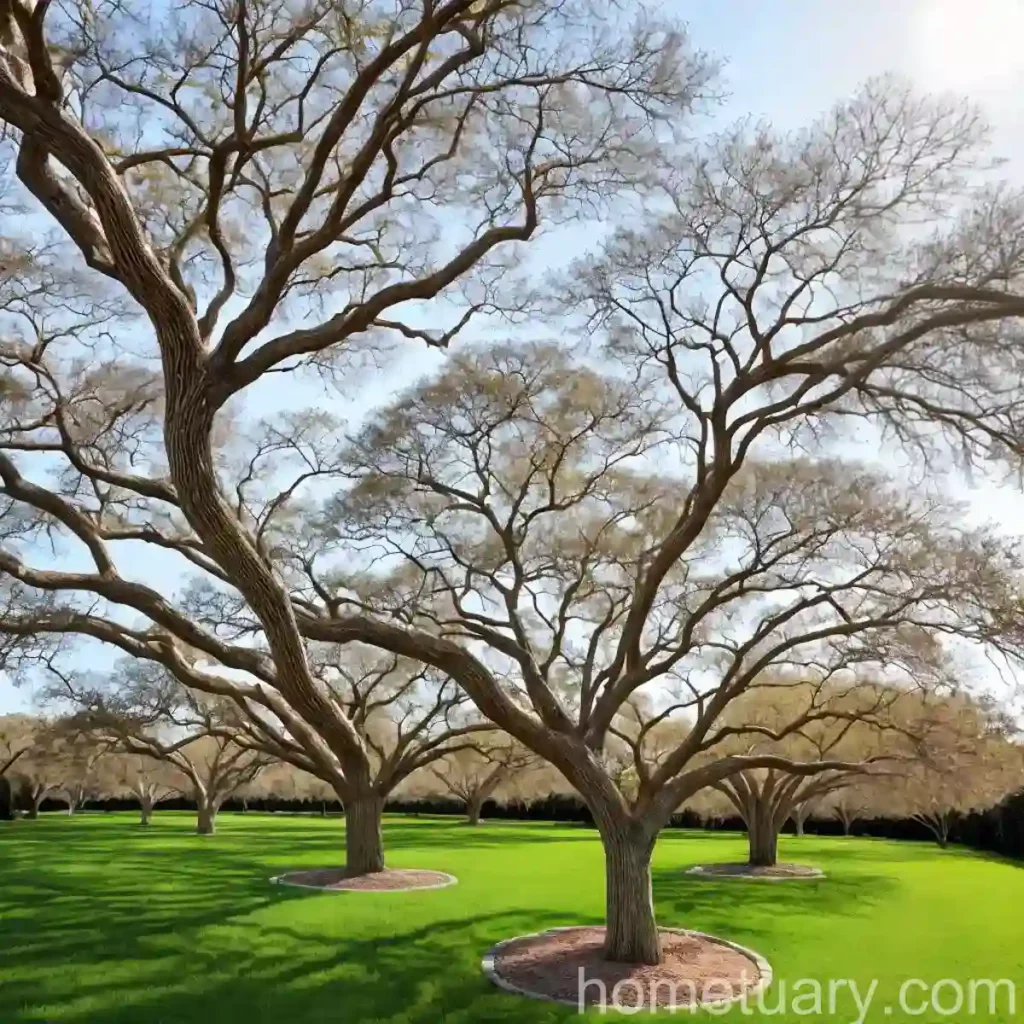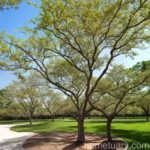The Resilient and Versatile Hardy Pecan (Carya illinoinensis ‘Montgomery’)
What is the Hardy Pecan (Carya illinoinensis ‘Montgomery’)?
The hardy pecan (Carya illinoinensis ‘Montgomery’) is a cultivar of the pecan tree, a species native to North America and prized for its delicious and nutritious nuts. Known for its winter resistance, this variety is esteemed for its ability to thrive in colder climates, making it a valuable addition to orchards and gardens in regions with harsh winters.
Key Takeaways – Hardy Pecan (Carya illinoinensis ‘Montgomery’)
Before diving into the specifics of the hardy pecan, let’s get an overview of the key takeaways:
- Pecan Tree Variety: Carya illinoinensis ‘Montgomery’ is a sought-after variety of the pecan tree.
- Winter-Resistant: It is recognized for its capability to withstand cold temperatures and harsh winters.
- Nut Production: Known for its bountiful and delicious nut production.
- Cultivar Characteristics: Exhibits resilience and adaptability, making it suitable for diverse environments.
- Disease Resistance: This cultivar is valued for its resistance to several pecan tree diseases.
- Growth Habits: Understanding its growth patterns and habits is essential to successful cultivation.
Now, let’s explore the various aspects of the hardy pecan, ranging from its cultural requirements to its resilience in the face of diseases and pests.
Culture
The culture of Carya illinoinensis ‘Montgomery’ encompasses all the practices and processes associated with its successful growth and development. Understanding its cultural needs is essential for those who wish to cultivate this exceptional pecan tree variety.
Water
Adequate watering is crucial for the health and productivity of the hardy pecan. It is essential to provide consistent moisture, particularly during the tree’s establishment phase and the period of nut development. However, it’s equally important to ensure proper drainage to prevent waterlogged conditions, which can be detrimental to the tree’s health.
Sunlight
Like most pecan varieties, the hardy pecan thrives in full sun. It requires a minimum of 6 to 8 hours of direct sunlight per day to support optimal growth and nut production.
Fertilizer
Proper fertilization is key to supporting the growth and fruiting of the Montgomery pecan tree. A balanced fertilizer with a higher proportion of nitrogen is generally recommended for pecan trees, promoting robust foliage and overall tree health. It’s important to adhere to recommended application rates and timings to avoid over-fertilization, which can have adverse effects on the tree.
Soil
The hardy pecan thrives in well-drained, fertile soil. Prior to planting, a soil test is advisable to assess the pH and nutrient levels of the soil. Pecan trees typically prefer slightly acidic to neutral soils with a pH range of 6.0 to 7.0. Understanding the specific soil requirements of this variety is imperative for successful establishment and long-term growth.
Pruning
Pruning plays a vital role in the cultivation of Carya illinoinensis ‘Montgomery’. Regular pruning helps maintain the tree’s structure, allows for proper air circulation, and facilitates light penetration, all of which contribute to healthy growth and nut production. Pruning should ideally be carried out during the tree’s dormant season to minimize stress and maximize effectiveness.
Propagation
The propagation of the hardy pecan can be achieved through several methods, including grafting and budding. Grafted trees are often preferred for their ability to exhibit the desired characteristics of the cultivar. Understanding the propagation techniques best suited for this variety is essential for maintaining its unique attributes and ensuring genetic purity.
Container Popularity
While pecan trees, including the hardy pecan, are typically grown in orchards and open fields, there is a rising interest in container cultivation. Pecan trees can be successfully grown in large containers, provided that they receive adequate care, including regular watering, appropriate fertilization, and sufficient sunlight.
Container Common Diseases
Diseases can pose a challenge to container-grown pecan trees, with issues such as root rot and fungal infections being of particular concern. Managing these diseases in a container environment requires careful attention to watering practices, soil moisture levels, and preventive measures such as proper air circulation and sanitation.
Disease Diagnosis
Being able to identify and diagnose diseases that affect the hardy pecan is crucial for implementing timely and effective measures to mitigate their impact. Common diseases in pecan trees, including fungal infections and nutritional disorders, can manifest through various symptoms, making accurate diagnosis essential for targeted treatment.
Common Pests
Pests such as pecan weevils, aphids, and pecan phylloxera can pose a threat to the health and productivity of the hardy pecan. Monitoring for pest activity, implementing integrated pest management strategies, and considering beneficial insect conservation are essential for minimizing pest damage in pecan orchards and gardens.
Botanist’s Tips
Here are a few expert tips and recommendations for cultivating the hardy pecan:
- Understanding Hardiness: Appreciating the cold tolerance and resilience of the ‘Montgomery’ variety is key to leveraging its unique traits in colder climates.
- Adequate Nutrition: Ensuring proper nutrition through soil amendment and fertilization is essential for supporting the vigorous growth and nut production of the pecan tree.
- Disease Management: Regular monitoring and prompt intervention are critical for preventing and managing diseases that can affect pecan trees, particularly in regions prone to specific diseases.
- Pruning Practices: Adhering to best pruning practices, particularly during the tree’s dormancy, contributes to its overall health and productivity.
Fun Facts
Uncover some intriguing facts about the hardy pecan (Carya illinoinensis ‘Montgomery’):
- The pecan tree is the official state tree of Texas.
- Pecans are an excellent source of various nutrients, including antioxidants, vitamin E, and healthy fats.
- Pecan wood is highly valued for its use in furniture making and smoking meats due to its distinctive flavor.
As we delve into the specific aspects of the hardy pecan, it is essential to also provide links to external resources for additional insights and information.
Links to External Resources
- Pecan Tree Care Guide
- Pecan Tree Diseases and Management
- Understanding Soil pH
- Container Gardening Tips
- Pecan Tree Pruning Guidelines
With the growing interest in sustainable and resilient agriculture, the hardy pecan (Carya illinoinensis ‘Montgomery’) stands out as a valuable addition to orchards and landscapes in colder climates. Understanding and appreciating its unique characteristics, cultural requirements, diseases, and pests are fundamental to successful cultivation and utilization of this exceptional pecan tree variety.















